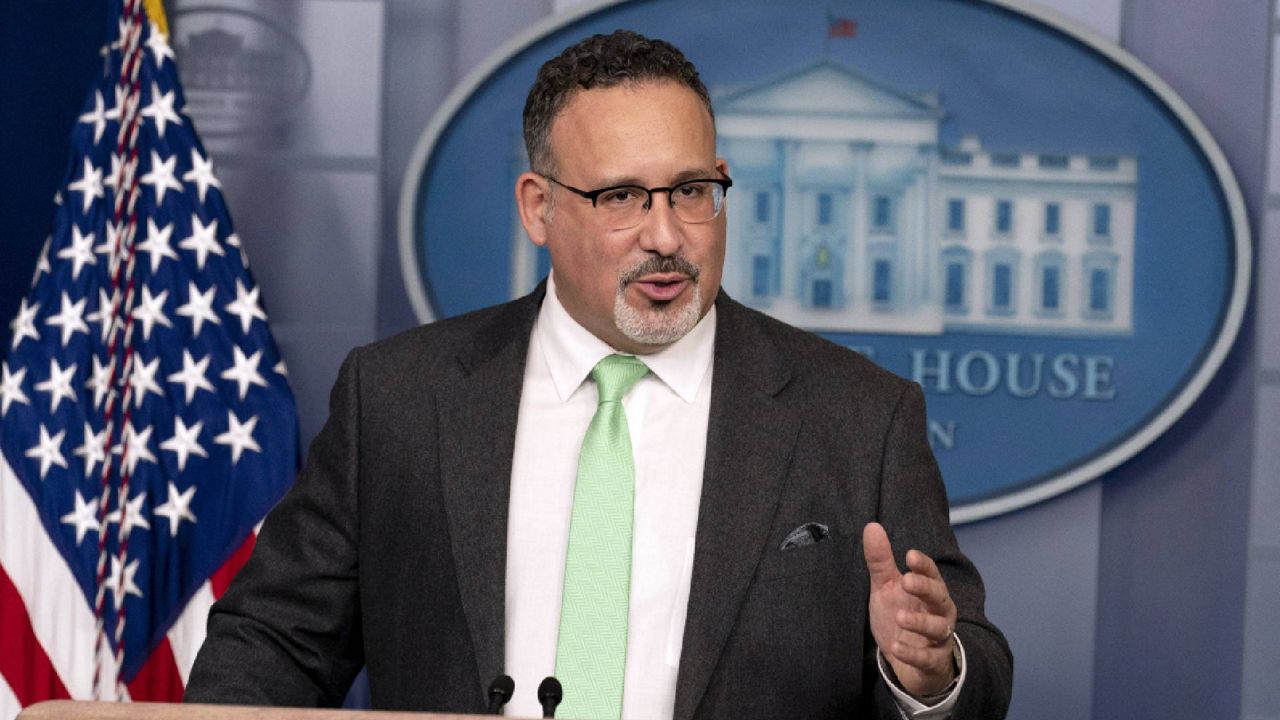The Biden administration will extend a pause on federal student loan payments, interest and collection of defaulted loans through Jan. 31, after Democratic lawmakers and advocates called for additional relief for borrowers beyond the original moratorium set to end Sept. 30.
The pandemic-related pause was first approved in March of 2020 by former president Donald Trump and then extended under President Joe Biden in January.
On Friday, Biden officials warned the extension would be the last one, which allows borrowers to plan ahead for payments in 2022, they said.
Americans who owe federal student debt have been able to opt out from monthly payments since then, and their loans have collected 0% interest during the same period.
“The payment pause has been a lifeline that allowed millions of Americans to focus on their families, health, and finances instead of student loans during the national emergency,” said U.S. Secretary of Education Miguel Cardona in a statement.
“As our nation’s economy continues to recover from a deep hole, this final extension will give students and borrowers the time they need to plan for restart and ensure a smooth pathway back to repayment,” he added.
Last month, Senate Majority Leader Chuck Schumer and other Democrats asked the Biden administration to extend the pause and also follow through on a campaign promise to forgive some portion of student debt, though the White House hasn’t announced any plans for forgiveness.
“All President Biden has to do is flick his pen, sign it,” Schumer said, though his House counterpart, Speaker Nancy Pelosi, has also recently denied the president has the authority to cancel debt on his own.
Democratic lawmakers praised Friday's announcement while also pivoting the conversation to loan forgiveness.
"This will provide much-needed relief for millions of families," New York Rep. Mondaire Jones wrote on Twitter. "He must now use this same authority to cancel student debt."
Jones, who spoke to Spectrum News about the issue earlier this summer, said canceling debt would boost the economy and aid low-income borrowers. Critics of loan cancellation argue it would hurt the federal budget and put taxpayers on the hook for others' loans.
When the student loan moratorium was still set to end on September 30, polls showed a majority of borrowers were not ready to start payments again. A Pew Trusts survey of about 1,500 borrowers found that two-thirds said it would be difficult to resume paying their loans.
And another from the advocacy organization Student Debt Crisis found 86% of borrowers surveyed said the pandemic freeze on payments made them more likely to support permanent cancellation.
Advocates have also said the pause freed up borrowers to spend on other things.
“The stories are remarkable — people who for the first time in their lives have been able to pay down a credit card or have been able to for, literally the first time in their lives, put some money away for an emergency,” Seth Frotman, executive director of the Student Borrower Protection Center, told Spectrum News earlier this summer.



